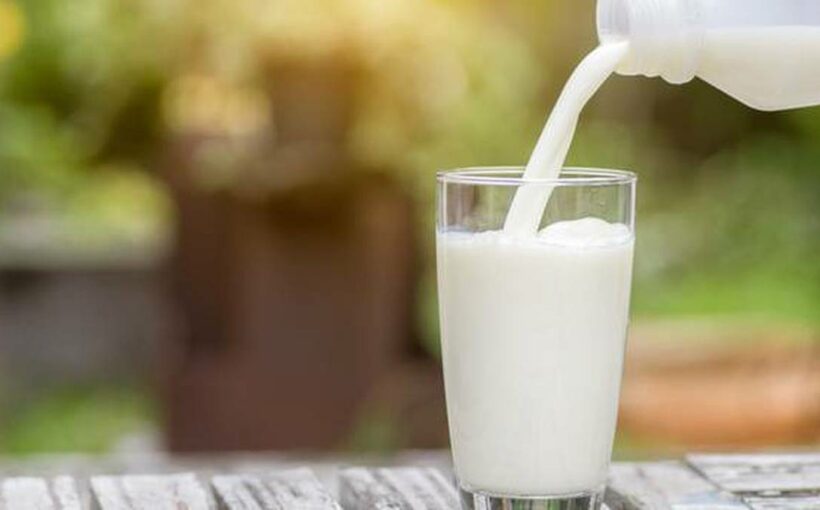Singapore food and agribusiness company Olam says it has ambitious plans for New Zealand and its proposed South Waikato dairy processing plant is “a baby step”.
Managing director of Olam’s global dairy arm, Sandeep Jain said “absolutely” more dairy plants were on the company’s radar.
“We have very ambitious plans for New Zealand. We are looking ahead 15 to 20 years. We very strongly believe in the New Zealand provenance and its outstanding farmers. This is a baby step towards a larger ambition.
“One step at a time, the first step is Tokoroa. We’ve had a very warm reception from… the community. Once we get that right then we will start thinking and planning for step two.”
Promoting the provenance and unique quality of New Zealand milk is a cornerstone of the new business strategy of New Zealand dairy leader Fonterra, the country’s biggest business and the world’s sixth largest dairy company by revenue.Fonterra has eight plants in the Waikato.
Olam is a major supplier of coffee, cocoa, nuts, spices and dairy to food service markets around the world.
Until this year it was a shareholder in Open Country Dairy, New Zealand’s second dairy biggest processor and exporter after Fonterra. It invested in OCD’s legacy entity in 2008 and sold its remaining stake earlier this year to majority shareholder, Motueka’s Talley’s Group, for $80.9 million.
Olam, via subsidiary Olam Food Ingredients, plans a $100m-plus plant to produce ingredients for food services customers from the third quarter of 2023, said Jain. The new factory was expected to create 50-60 full-time jobs in Tokoroa when fully operational.
Two ex-Fonterra managers have been appointed to run the plant, which will be the 14th dairy processing site in the Waikato.
Given the nature of Olam’s other four food specialities besides dairy and its technologies expertise, the company could longer term plan to produce functional and on-trend foods in New Zealand, for example beverages for food service customers in China, said Jain. The company has 14 R&D innovation sites around the world.
Olam farms 100,000 dairy cows in Uruguay and Russia. Its Uruguay farms produced 400m litres a year and 200m in Russia. Feed was grown on around 100,000ha of land.
Jain said the Tokoroa plant would need 80-120 farmer-suppliers. Discussions had begun with neighbouring farmers.
Asked why Olam would set up in New Zealand when the country’s milk production is generally accepted to be flatlining and tipped to reduce, Jain said the company wasn’t concerned about this.
“We’re very confident that for us, the way we are approaching this and planning the business we will be successful. We think people will work with us and we are not concerned about this aspect.”
Responding to the suggestion that Olam had sat for years at OCD’s board table, learned a lot about the industry and now was returning to set up shop in competition with the New Zealand exporter, Jain said the two companies had had a “symbiotic relationship”.
Olam had contributed to the growth of Open Country over the years, and had a good relationship with the company and the Talley family, he said.
“(Open Country) is a professionally managed company. A board is more involved at high level, setting strategy and setting direction.
“By being on the board have we gained tremendous operational expertise? I don’t think so.
“Have we understood the industry? Yes, I don’t dispute that at all, it’s a fair point.
“But the future we are planning for ourselves requires really different competencies and a very different skill set and I don’t think any board member of any company can acquire that by being on the board.”
Farmers who choose to supply Olam will most likely be current Fonterra or Open Country suppliers.
Asked what Olam would offer them that the two New Zealand companies didn’t, Jain said the depth of consultation with, and listening to, local farmers would be Olam’s point of difference.
Olam would meet the competition on milk price but “we will definitely do a lot more than what farmers are probably able to access today”.
“We are listening to what farmers want and the challenges they face. Once we have it figured out we will draw up a comprehensive offering which addresses their concerns and meets competition.”
The list of financial and non-financial challenges Olam had heard so far was “exhaustive” including succession and mental health issues.
“It is interesting to hear them, to understand their thinking. I don’t think that has been done enough at this stage.”
Olam has yet to secure Overseas Investment Office clearance for the Tokoroa site, and resource consents from the local authority.
However OIO approval seems likely assured as it is a reputable company which would pass the good character test and it has history in New Zealand – it owns 100 per cent of the shares in NZ Farming Systems Uruguay, an agricultural company incorporated here.
Additionally, it not applying under the “benefit to New Zealand” or sensitive land pathways but under the “significant business assets” application route.Olam did not require OIO approval to buy the 11.8ha industrial-zoned Tokoroa site.
The vacant Tokoroa site has historic consents for a dairy plant. It was sold to Olam by a Danish company specialist in dairy manufacturing.
Source: Read Full Article

/cloudfront-ap-southeast-2.images.arcpublishing.com/nzme/7WUG57ZCB54DTYKUCUR4VWXASM.jpg)